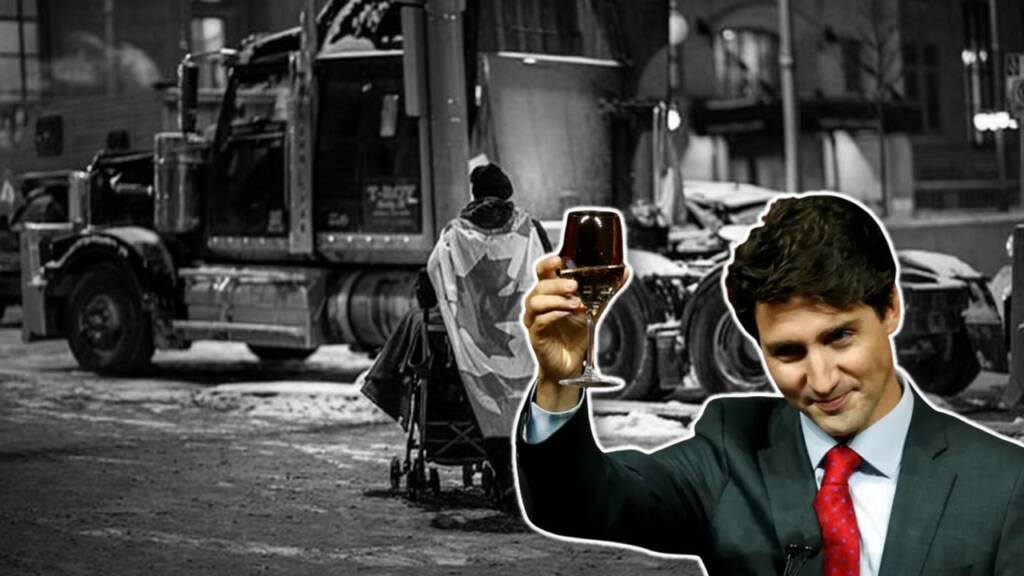In a recent report by Blacklock’s Reporter, it was revealed that over 800 Canadians have experienced “debanking” in the past five years, sparking concerns about financial censorship. This trend came to light in the context of the Freedom Convoy protests, where hundreds of Canadians expressed dissent against the government’s policies.
The data, obtained through an access-to-information request, shows that 837 individuals had their bank accounts closed between 2018 and 2023. Notably, many of these individuals were dissenters who opposed the Canadian government’s official agenda, particularly those involved in the Freedom Convoy protests.
The Financial Consumer Agency of Canada (FCAC) faced scrutiny as grievances exposed a concerning pattern of financial restrictions, comparable to concerns related to terrorism and money laundering. Supporters of the Freedom Convoy, including their bank accounts and Bitcoin wallets, became targets of a widespread financial crackdown.
A careful analysis of the available data revealed that 267 bank accounts and 170 Bitcoin wallets linked to Freedom Convoy supporters faced severe financial restrictions, resulting in an estimated total loss of $7.8 million. This raised questions about the balance between financial surveillance and political activism, and the potential infringement on individual financial liberties.
Also Read: After blocking funds, Trudeau begins harassing people who donated to Truckers
The scale of the financial restrictions suggests a broader strategy by authorities to quell dissent or disrupt movements seen as contentious. The FCAC, as a key regulatory body, grappled with the challenge of balancing financial security and safeguarding citizens’ rights to political expression. This situation highlighted the interplay between financial institutions, government oversight, and individual freedoms.
Debates intensified around the actions of regulatory bodies and the mechanisms used to monitor and control financial activities. The incident with the Freedom Convoy supporters prompted questions about the future trajectory of financial regulation in Canada and its implications for individual rights and freedoms.
During a hearing on March 7, 2022, Angelina Mason from the Bankers Association testified about the debanking process. Mason noted that while the Royal Canadian Mounted Police (RCMP) supplied a list of names, banks were also required to exercise judgment in identifying account holders for debanking. The situation became murkier when New Democrat MP Daniel Blaikie inquired about individuals debanked but not on the RCMP list, to which Mason responded with a simple “Yes.”
The complexities surrounding the freezing of bank accounts belonging to Freedom Convoy protesters in Canada reached a new level with the testimony of Prime Minister Justin Trudeau. In an appearance before the Public Order Emergency Commission (POEC) last year, Trudeau defended his decision to impose financial restrictions on the protesters, citing the Emergencies Act designed for national emergencies. Despite acknowledging the non-violent nature of the protests, Trudeau emphasized the need to maintain order and stability in the face of perceived threats.
Trudeau’s justification for freezing the bank accounts raised questions about the threshold for invoking exceptional measures and potential ramifications for democratic values. Critics argued that this approach could set a precedent for curtailing civil liberties under the guise of national security. Trudeau’s confidence in his decision intensified the ongoing national conversation about executive power and the protection of citizens’ rights during social unrest.
As the aftermath of the Freedom Convoy events unfolded, Trudeau’s testimony became a focal point in discussions about the balance between maintaining public order and safeguarding democratic principles. The episode highlighted the delicate balance between security imperatives and the preservation of individual liberties in the evolving landscape of Canadian governance.
Trudeau’s comments during the hearings revealed his belief that the use of the Emergencies Act was justified, citing the absence of loss of life or serious violence during the protests. The commission is now investigating the justifiability of the government’s decision to invoke the Emergencies Act.
The prime minister’s characterization of those opposing COVID measures as a “small, fringe minority” with “unacceptable views” adds another layer to the ongoing debate surrounding the government’s handling of dissent. As the nation grapples with the aftermath of the Freedom Convoy protests, questions linger about the balance between maintaining public safety and respecting individuals’ right to dissent—a delicate equilibrium that requires careful consideration in a democratic society.
